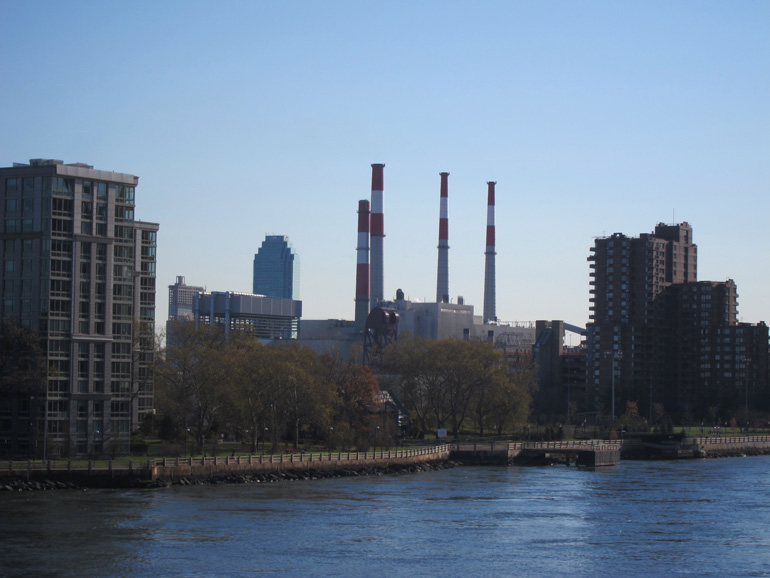Gotham Diary:
Regime Change
15 November 2012
Two stories in today’s Times make it clear that we need a new way of doing things when it comes to assuring the convenience and necessity of everyday life. Andrew Higgins talked to Nederlanders, who know a thing or two about floods, about protecting New York City from future storm surges. The consensus was that we will have to figure out what works for us — copying Dutch solutions isn’t the answer. There was also concern that Americans will never spend what it takes to prevent disaster. They’d much rather (as the Nederlanders see it) clean up afterward. As they know, however, all to often there isn’t an afterward, at least for too many victims. Matthew Wald covered a new report from the National Academy of Sciences concerning the vulnerability of the American power grid to terrorist attacks — and to the weeks or months that it could be put out of service, owing to such details as the fact that bulk-transmission transformers are not manufactured in the United States.
It is time to stop treating power and safety as matters that can be handled by municipalities and profit-making corporations. We should be thinking about creating a service, modeled perhaps on the Coast Guard (although not necessarily a federal institution), charged with overseeing the safety of our towns and the security of our access to electric power. At the end of their terms, satisfactory recruits would receive appropriate professional credentials (as electricians, say), while superior recruits would be encouraged to serve as officers, effectively making a career of helping to run the system.
In an earlier Times story, it was reported that the principal topic of discussion at a meeting of Long Island Lighting trustees, held four days before Hurricane Sandy belted out widespread devastation, was the advisability of hiring a branding consultant. The storm itself was mentioned but not, apparently, discussed. It is clear that the trustees are not inclined to prioritize the well-being of their customers, thousands of whom are still without power. Whether the power company is structured as a government agency (as it is currently) or a private corporation (as it used to be) doesn’t seem to make a difference: its mission appears to provide electricity as a luxury good, as indeed electricity was when it was introduced. It isn’t so much the physical plant of LIPA that is outmoded — although its equipment has been called “antiquated” by technicians who have pitched in from other parts of the country — as it is the mindset with which the entire operation was conceived and in which, incredibly, it persists. Â
***
Â

